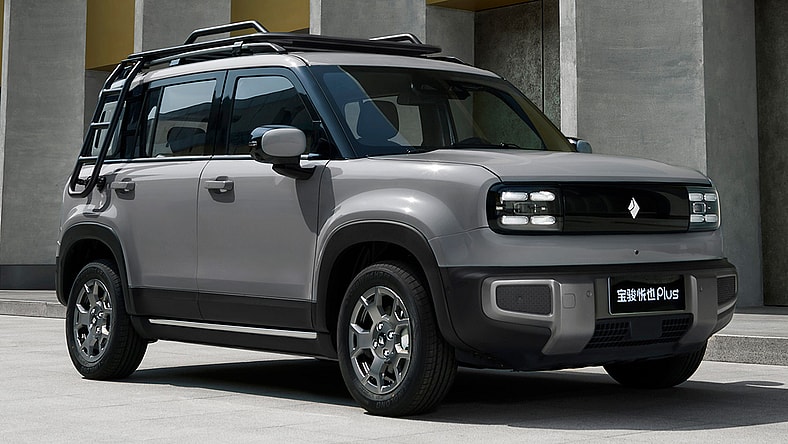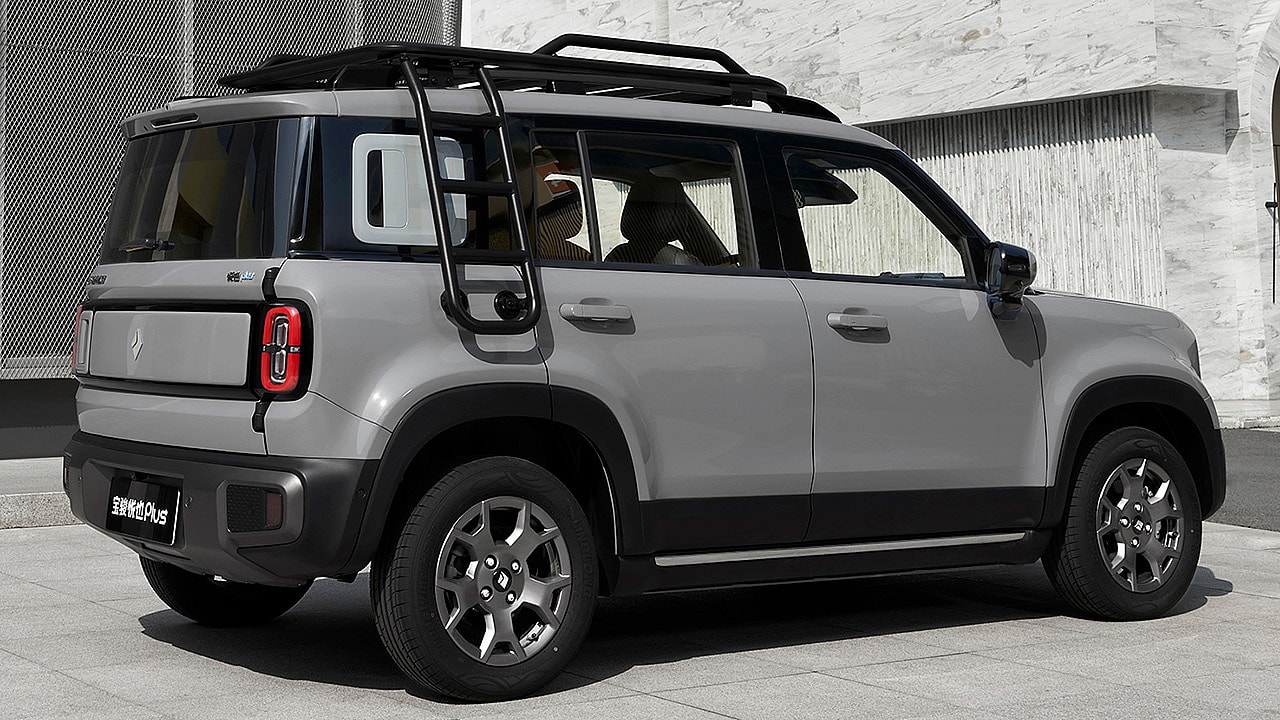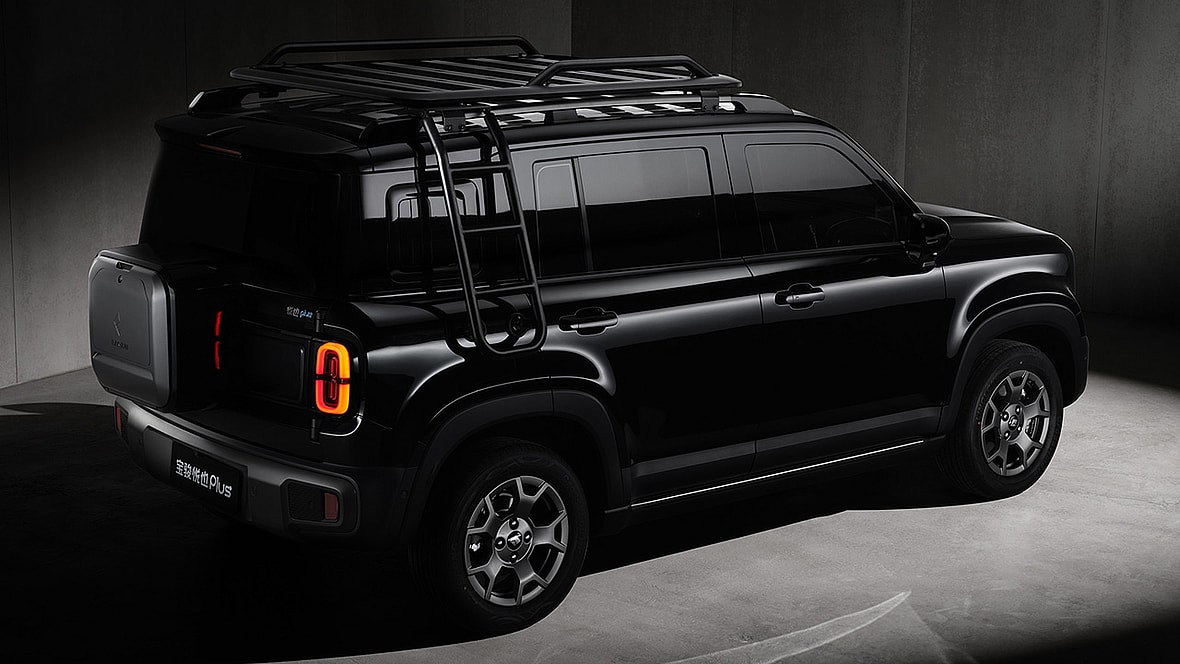The New $13,000 Chevrolet Spark Is GM’s Coolest Little SUV, But You Can’t Get It In The USA

General Motors has a new model that’s sparking a lot of interest around the world.
The automaker’s China joint venture company Baojun unveiled a new electric SUV called the Yep Plus last November and there’s a Chevrolet Spark version of it on the way.
The subcompact is about as long as the old Chevrolet Sonic hatchback, but wears a boxy SUV body along the lines of the the Ford Bronco Sport’s and Land Rover Defender’s.
The Yep Plus isn’t a serious off-roader, but is being pitched as an outdoor lifestyle vehicle and is available with features like a roof track, roof ladder and external pannier cases.
Read Also: 5 ABSOLUTELY ACCURATE AUTOMOTIVE PREDICTIONS FOR 2025

It’s powered by a 102 hp rear electric motor and a 42 kWh battery pack that is rated for 401 kilometers of range in China, which converts to about 185 miles on the U.S. EPA test cycle.

Chevrolet hasn’t officially unveiled the Spark yet, but the GM Authority website has obtained photos of it, which reveal that the only visual update is the switch to Chevrolet logos and the Spark EUV Activ nameplate. The Spark will initially be sold in Asia and South America, but Chevrolet has no plans to import it to the USA as it was not designed with local safety regulations and consumer preferences in mind.
Read Also: 6 AMERICAN CARS AND TRUCKS THAT CAME BACK FROM THE DEAD
Chevrolet does have a new entry-level EV on the way later this year, however, as it will be introducing an new Bolt built in Kansas that should start around $30,000. Images of the vehicle and its technical details have not yet been released, but it is an evolution of the previous Bolt that is equipped with GM’s latest electric drivetrain technology.


Chevy’s current budget EV offering in the U.S. is the Equinox EV, which has a starting price of $34,995 and a range of 319 miles per charge. It also qualifies for the $7,500 federal electric vehicle purchase tax credit, as will the Bolt, although the future of that program is uncertain with reports that the incoming Trump administration may modify or discontinue it.
